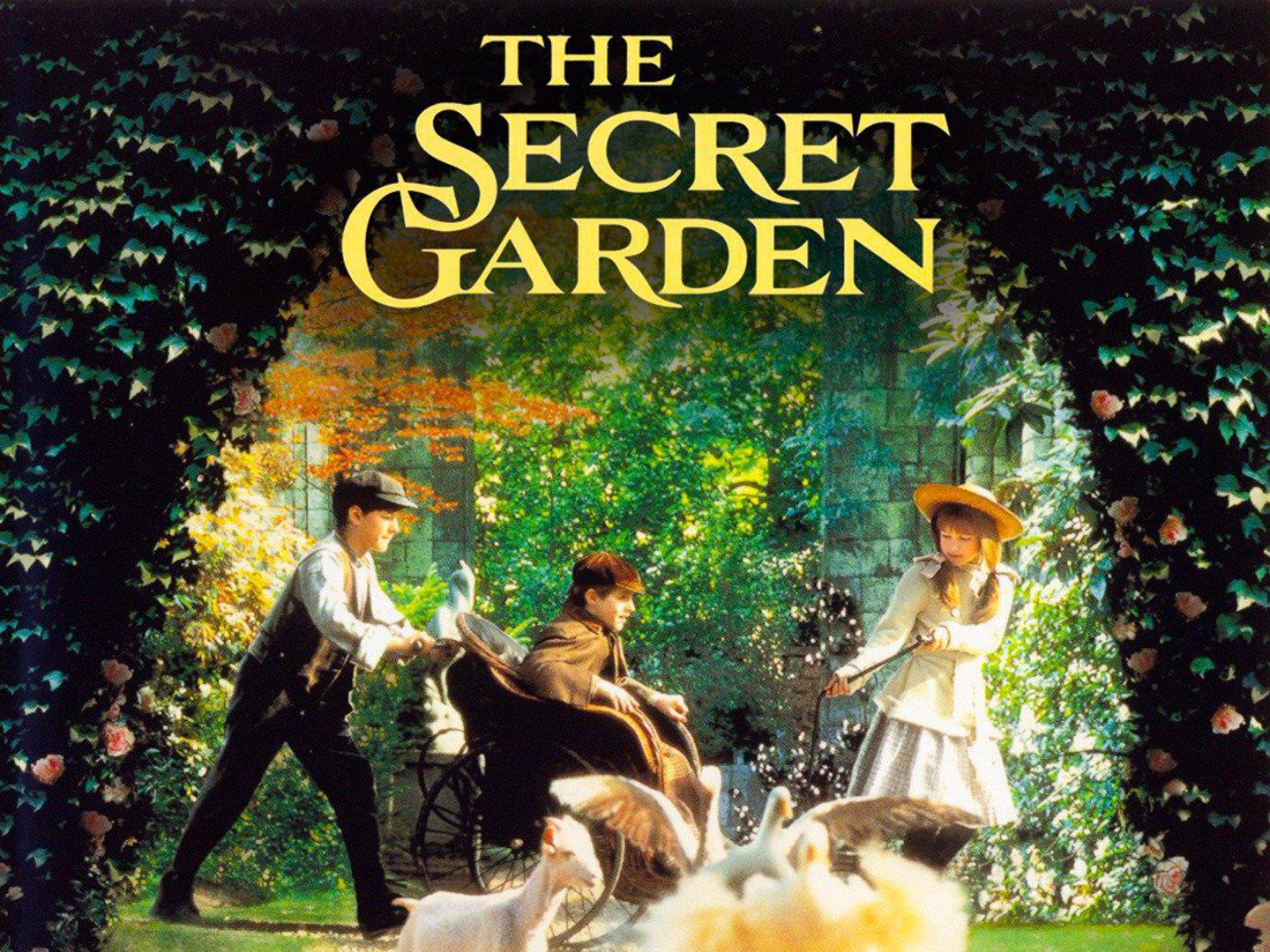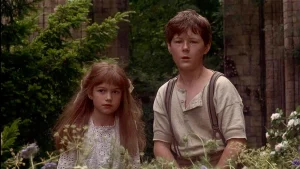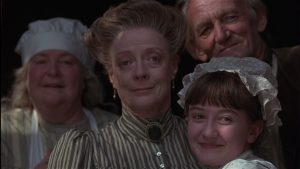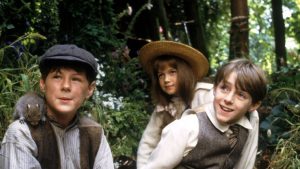“The secret garden 1993”

“The Secret Garden” (1993) is a beautifully crafted family drama based on the beloved 1911 novel by Frances Hodgson Burnett. Directed by Agnieszka Holland, the film tells the enchanting and emotionally rich story of a young girl who discovers a hidden, neglected garden on her uncle’s estate and sets out to bring it back to life. In doing so, she also helps heal the broken spirits of those around her. With its lush visuals, heartfelt performances, and themes of healing and renewal, The Secret Garden remains a timeless adaptation of a cherished literary classic.
Plot Overview
The story centers on Mary Lennox (Kate Maberly), a 10-year-old girl born to British parents in colonial India. After her parents tragically die in an earthquake, Mary is sent to England to live with her reclusive uncle, Lord Archibald Craven (John Lynch), at his vast, gloomy estate, Misselthwaite Manor. The mansion is cold and isolated, much like Mary herself, who has been neglected for most of her life and is initially sullen, spoiled, and distant.
At Misselthwaite, Mary meets the strict housekeeper, Mrs. Medlock (Maggie Smith), and the kindly maid Martha (Laura Crossley), who becomes one of her first friends. One day, while exploring the grounds, Mary discovers a key to a walled-off garden that has been locked away since the death of her aunt, Lilian Craven, 10 years earlier. The garden is wild and overgrown, but Mary is captivated by it and begins to secretly restore it to its former beauty.
As Mary tends to the garden, she also uncovers more secrets within the manor. She discovers her sickly cousin, Colin Craven (Heydon Prowse), who has been kept in isolation by his father, believing that he is too frail to live a normal life. Colin is spoiled and bitter, but Mary’s determination and curiosity draw him out of his self-imposed exile. Together with Dickon (Andrew Knott), Martha’s nature-loving brother, Mary and Colin work on restoring the garden, which becomes a place of healing for them both.
As the garden flourishes, so too do Mary, Colin, and even Lord Craven, who has been living in grief and guilt over his wife’s death. The once-lifeless manor is transformed by the magic of the secret garden, bringing joy and renewal to everyone involved.
Key Characters
- Mary Lennox (Kate Maberly): Mary is the central character, an orphaned girl who is emotionally neglected at the start of the story. Her journey is one of self-discovery, as she transforms from a lonely and spoiled child into a compassionate and nurturing person. The secret garden becomes both her escape and her path to personal growth.
- Colin Craven (Heydon Prowse): Colin is Mary’s cousin, a sickly boy who has been confined to his bed for most of his life due to his father’s belief that he is too fragile. Through his relationship with Mary and their shared work in the garden, Colin’s physical and emotional health improves, symbolizing the power of nature and friendship to heal.
- Dickon Sowerby (Andrew Knott): Dickon is Martha’s brother and a boy with a deep connection to nature. He helps Mary restore the garden and becomes a close friend to both her and Colin. His love for animals and the natural world plays a significant role in bringing the garden, and Colin, back to life.
- Lord Archibald Craven (John Lynch): Colin’s father and Mary’s uncle, Lord Craven is a grief-stricken man who has distanced himself from his son after the death of his wife. His emotional journey parallels that of Mary and Colin, as the garden helps him reconnect with his son and let go of his sorrow.
- Mrs. Medlock (Maggie Smith): The strict housekeeper at Misselthwaite Manor, Mrs. Medlock initially tries to keep Mary and Colin in line with rigid rules. However, as the children’s spirits are lifted by the garden, her hard exterior softens, and she becomes a less dominant figure.
- Martha (Laura Crossley): A kind-hearted maid, Martha forms a bond with Mary and introduces her to her brother Dickon. She helps guide Mary towards becoming more independent and empathetic.
Themes
- Healing and Renewal: The most significant theme in The Secret Garden is the power of healing, both physical and emotional. The garden represents renewal and growth, mirroring the transformations that Mary, Colin, and even Lord Craven experience. As the garden flourishes, so do the characters, finding joy and purpose where once there was only sorrow.
- The Power of Nature: The film emphasizes the restorative power of nature. Mary, Colin, and Dickon’s work in the garden symbolizes the idea that being connected to the natural world can bring peace, health, and happiness. The garden’s return to life reflects the inner healing of the characters.
- Friendship and Compassion: The relationships between Mary, Colin, and Dickon demonstrate how friendship can change lives. Mary’s initial loneliness is replaced by the warmth of friendship, which helps her, and those around her, to grow and thrive. Compassion for others is a key element in the story’s emotional depth.
- Overcoming Grief and Loss: Both Mary and Lord Craven are dealing with profound losses—Mary has lost her parents, and Lord Craven has lost his wife. The film explores how both characters learn to overcome their grief, finding solace in the beauty of the garden and the love of family.

Visuals and Cinematography
The film’s visuals are one of its standout features, with its lush depiction of the English countryside and the transformation of the secret garden from a neglected, overgrown space to a vibrant, colorful paradise. The cinematography, led by Roger Deakins, captures the contrast between the cold, dark interior of Misselthwaite Manor and the bright, blooming world of the garden. This visual contrast underscores the emotional shifts in the characters as they move from isolation to connection.
The garden itself is portrayed as a magical, almost mystical place, with blooming flowers, ivy-covered walls, and a sense of timeless beauty. It becomes a symbol of life and renewal, as each character’s emotional journey unfolds within its walls.
Performances
- Kate Maberly delivers a compelling performance as Mary, portraying the character’s emotional evolution with depth and sensitivity. She captures both Mary’s initial coldness and her eventual warmth as she opens her heart to others.
- Heydon Prowse is effective as Colin, transforming from a spoiled, sickly boy to a more confident and hopeful young man. His performance adds emotional weight to the film, particularly in his scenes with Mary and Dickon.
- Maggie Smith brings her trademark authority to the role of Mrs. Medlock, offering a stern but ultimately caring presence in the household. Her role as the strict housekeeper provides both tension and moments of levity as her character softens over time.
- Andrew Knott as Dickon offers a natural, earthy charm, embodying the connection to nature that is central to the story.
- John Lynch brings a somber and introspective energy to the role of Lord Craven, and his eventual emotional release is one of the most moving aspects of the film.

Reception and Legacy
The Secret Garden (1993) received critical acclaim for its faithful adaptation of the novel, stunning visuals, and heartfelt performances. It was praised for capturing the spirit of the original story while adding a layer of visual beauty that enhanced the film’s emotional impact. The movie has since become a favorite for families and fans of the classic story, cherished for its timeless themes and enchanting portrayal of nature’s healing power.
Conclusion
The Secret Garden (1993) is a beautifully made film that brings Frances Hodgson Burnett’s classic novel to life with grace and elegance. With its themes of healing, friendship, and the transformative power of nature, the film is both visually stunning and emotionally resonant. The strong performances, especially from Kate Maberly and Maggie Smith, combined with the film’s lush cinematography, make it a timeless tale of renewal and hope, perfect for audiences of all ages.











